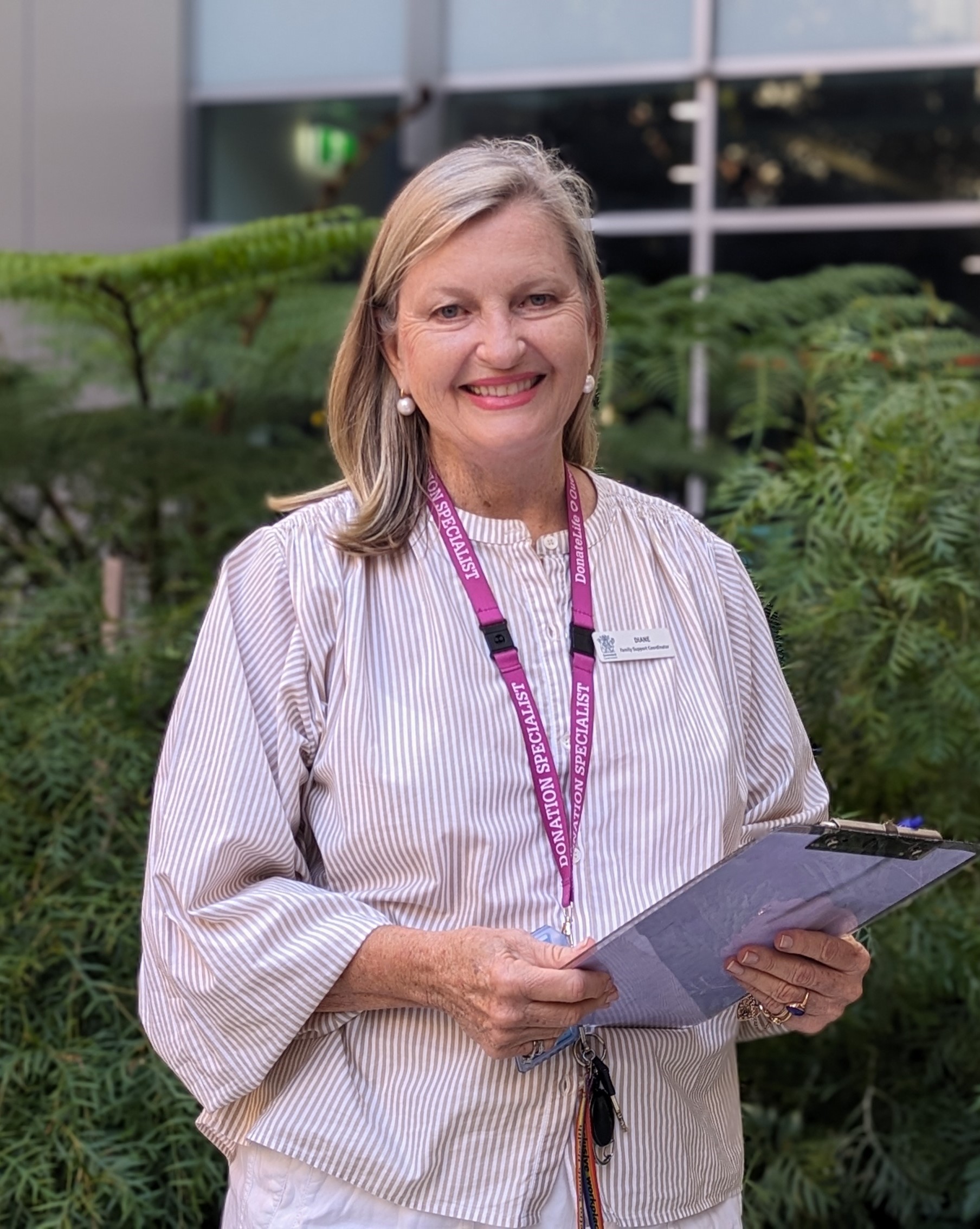
‘It’s common for many people experiencing a significant death in the family for the first time to feel that their experience of grief is unusual, or that they're not grieving properly. I support families by helping to normalise these emotions, and I remind them that they aren’t alone.’
- Diane Murphy
As told by Diane Murphy, DonateLife Queensland
I encounter great human kindness every single day, working with people who think of others in their own time of great loss. A family member once told me over a phone call that, for them, choosing organ donation was like a silver lining of hope in a very dark sky. That analogy has stuck with me since. You can’t help but be touched by the courage of donor families.
I’ve been working with DonateLife for over 15 years as a Family Support Coordinator and Bereavement Counsellor in Queensland. I make my first contact with donor families within the month of losing their loved one. As a trained mental health social worker, I can offer bereavement counselling, and I can also connect families with other support services and programs suited to their needs.
If I can help just one person, that is a big enough achievement for me. That was my goal when I initially took up social work.
It's very stimulating work, and it's creative work too. Everyone will go through a different grief journey, so you must be creative and personal in how you respond to people and provide intervention.
It’s common for many people experiencing a significant death in the family for the first time to feel that their experience of grief is unusual, or that they're not grieving properly. I support families encountering loss by helping to normalise these emotions, and I remind them that they aren’t alone.
Family Support Coordinators also use a unique skill called ‘companioning grief’. Your goal isn’t to rush families through their grief or to try to get them to move on. You're companioning them, journeying with families through their unique experience of loss. It’s a skill that takes a lot of listening.
Aside from counselling families, I’m also involved in supporting some of the education programs that prepare hospital staff to work with families in times of grief. It’s important that staff who connect with grieving families at such a difficult time in the hospital aren’t fearful of death. Instead, they can comfortably help the family through an end-of-life process.
Educating staff is vital for providing grieving families with a meaningful in-hospital experience that can preserve the person’s legacy and connect that family to support.
However, what I notice time and time again, is the need to have a family discussion about organ donation before it’s too late.
It’s hard for families to be left guessing what their loved ones would have wanted, especially under extremely emotional and tragic circumstances. Registering as a donor, and discussing that decision with those you love, is a very thoughtful and caring thing to do for your family.
I will always be touched by the kindness of families who choose to say yes to donation after experiencing a sudden and unexpected death. These families will stay in my heart and mind for the rest of my life.
Inspired by Diane's story?
